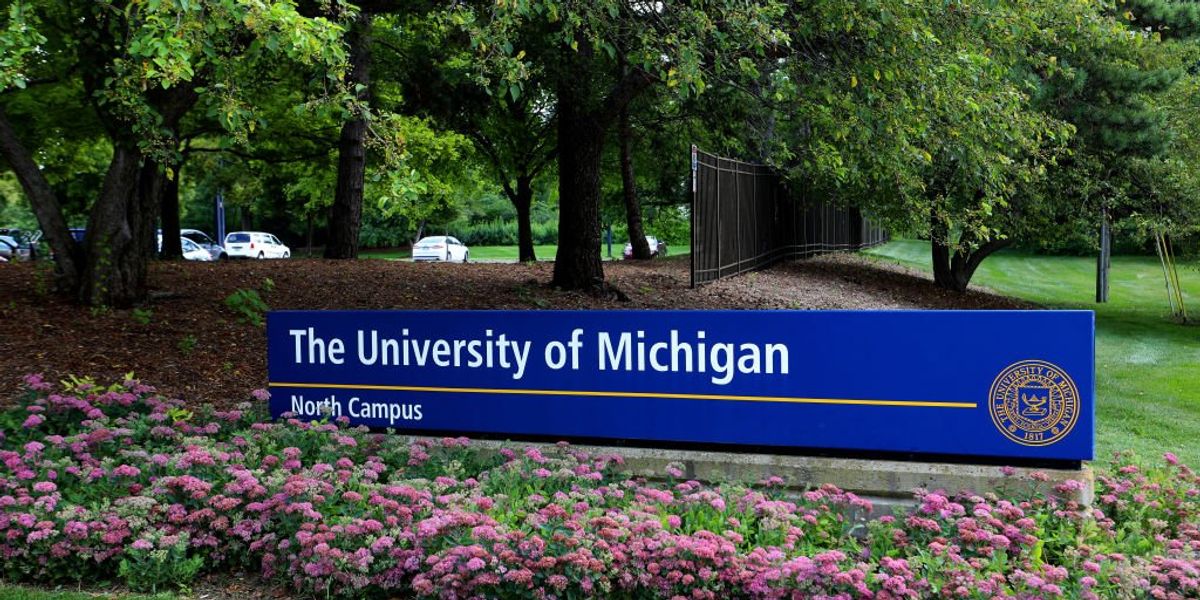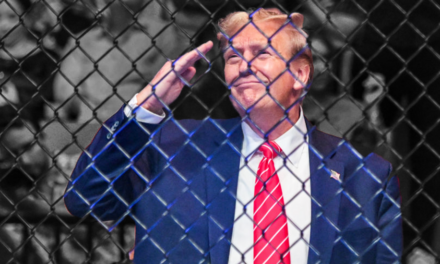We support our Publishers and Content Creators. You can view this story on their website by CLICKING HERE.

The University of Michigan announced Thursday that it was ending its use of DEI statements in faculty hiring.
This decision — recommended in late October by an eight-member faculty working group and inevitable in the wake of the U.S. Supreme Court’s June 29, 2023, ruling in Students for Fair Admissions, Inc. v. Harvard/UNC banning race-based college admission — is sure to disappoint the multitudes of leftists who rallied on campus Monday in support of continued funding for DEI initiatives.
The working group noted in its final recommendations document that while DEI statements have been used at the university for several years, they should no longer be solicited as part of faculty hiring and consideration for promotion, citing feedback from nearly 2,000 faculty members and policies at peer institutions.
“Critics of diversity statements perceive them as expressions of personal identity traits, support of specific ideology or opinions on socially relevant issues, and serve as a ‘litmus test’ of whether a faculty member’s views are politically acceptable,” wrote the working group. “Thus, as currently enacted, diversity statements have the potential to limit viewpoints and reduce diversity of thought among faculty members.”
While willing to give the DEI statements the boot in theory, the working group found a way to keep the “values of DEI” alive, recommending that applicants should incorporate DEI content into teaching, research, and service statements.
‘Students were less likely to interact with people of a different race or religion or with different politics.’
The university did not enact this second recommendation.
“Diversity, equity, and inclusion are three of our core values at the university. Our collective efforts in this area have produced important strides in opening opportunities for all people,” Laurie McCauley, the provost of the university, said in a statement Thursday. “As we pursue this challenging and complex work, we will continuously refine our approach.”
“I’m grateful for this faculty committee, which spent months soliciting feedback from across campus, evaluating our methods and determining the best course forward,” added McCauley.
Leftists on campus are evidently upset over the potential loss of the divisive and counterproductive tool for indoctrination and gatekeeping. After all, it has been a reliable cash cow that has kept numerous radicals employed.
The New York Times Magazine reported in October that the university had blown nearly $250 million on DEI since 2016. The result: an environment where internal polling reportedly indicated that “students were less likely to interact with people of a different race or religion or with different politics” and the creation of “a powerful conceptual framework for student and faculty grievances — and formidable bureaucratic mechanisms to pursue them.”
‘Some anti-oppressive DEI narratives can engender a hostile attribution bias and heighten racial suspicion, prejudicial attitudes, authoritarian policing, and support for punitive behaviors.’
A 2021 Heritage Foundation report indicated that Michigan had the largest DEI staff of any major public university on multiple measures, with hundreds of people formally tasked with providing DEI services.
The Times indicated that whereas other universities have seen theirs shrink, Michigan’s DEI bureaucracy has actually grown in recent years such that the number of employees operating in DEI-related offices or with “diversity, “equity,” or “inclusion” in their job titles at its Ann Arbor campus has actually ballooned by 71% since the school kicked off “D.E.I. 2.0” in 2023.
Those facing the potential loss of titles, jobs, and ideological dominance rallied on campus Monday to protest the possibility of a partial defunding of DEI initiatives at the university — something on which the board of regents is reportedly set to vote.
Pragya Choudhary, among the protesters who attended the rally, which was organized by the senate advisory committee on university affairs, said, “The principles of DEI have positively impacted every person here, and with improvement, DEI initiatives can do even more, but without DEI initiatives, we will all suffer,” reported the Michigan Daily.
Su’ad Abdul Khabeer, an associate professor of American culture, said, “Unlike those who claim DEI here at the University of Michigan has done nothing, my critique is we haven’t done enough.”
Ali Mazrui, a SACUA member and African studies associate chair, suggested that by defunding the race-obsessed programs, the board was surrendering to the incoming Trump administration: “We in faculty government would prefer that the Regents saw themselves as representing us and the people of the state rather than bowing prematurely to a government that is likely to be hostile to DEI. … Acquiescing too early, too easily, without protest, is the way that totalitarian governments come to power.”
“The Regents were interested in potentially doing away with the use of diversity statements for faculty hiring,” Kevin Cokley, the psychology department’s associate chair for diversity initiatives, told the Daily. “It is not a surprise to me that now there are some concerns about the potential dismantling of DEI initiatives at large.”
Sarah Hubbard, on the board of regents, said, “The national conversation has highlighted the need to be sure there are results and that all people are being represented under these DEI programs.”
A study published last week by the Network Contagion Research Institute and Rutgers University conclude that “while purporting to combat bias, some anti-oppressive DEI narratives can engender a hostile attribution bias and heighten racial suspicion, prejudicial attitudes, authoritarian policing, and support for punitive behaviors in the absence of evidence for a transgression deserving punishment.”
Like Blaze News? Bypass the censors, sign up for our newsletters, and get stories like this direct to your inbox. Sign up here!

 Conservative
Conservative  Search
Search Trending
Trending Current News
Current News 







